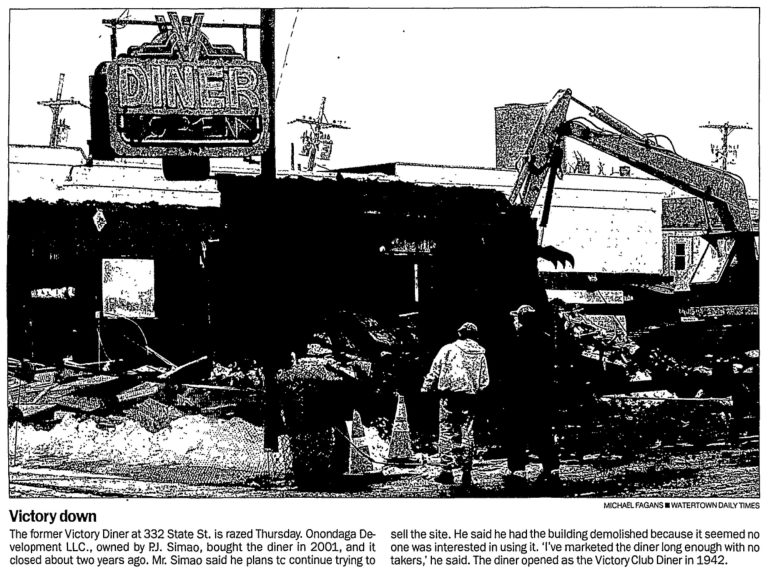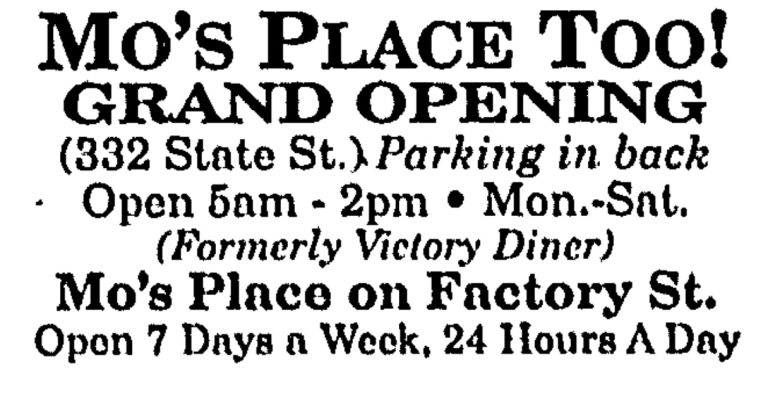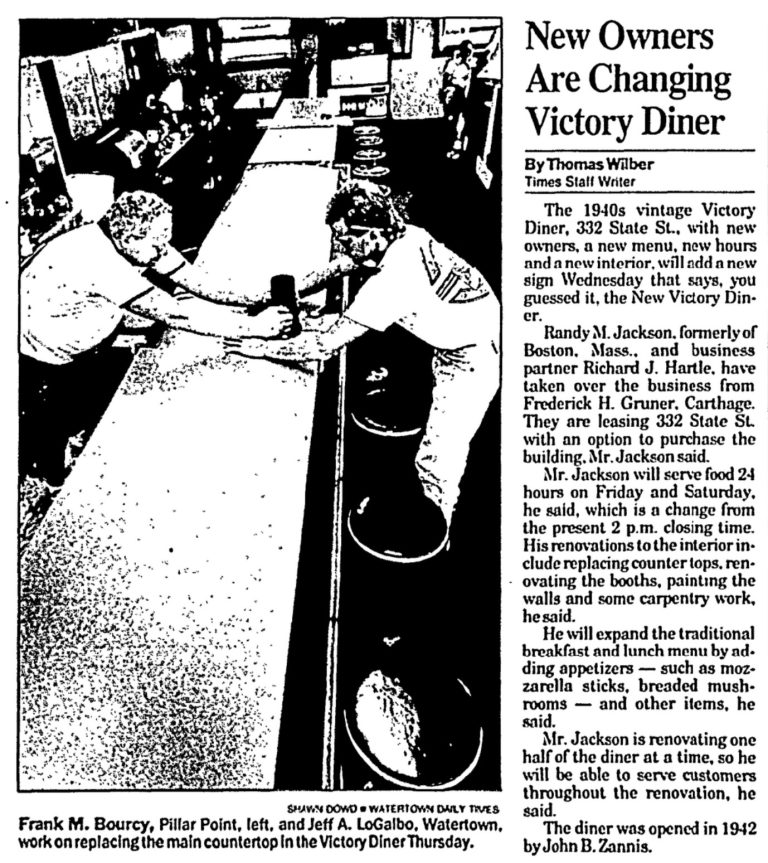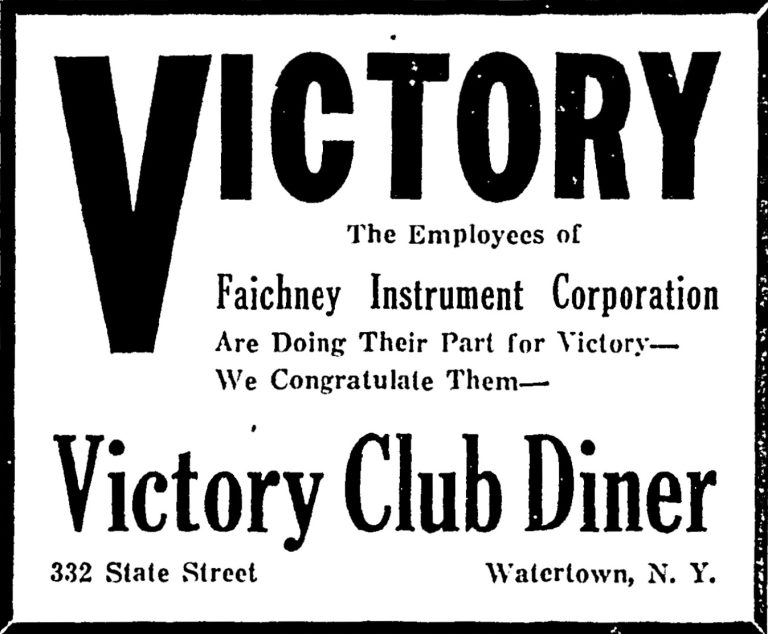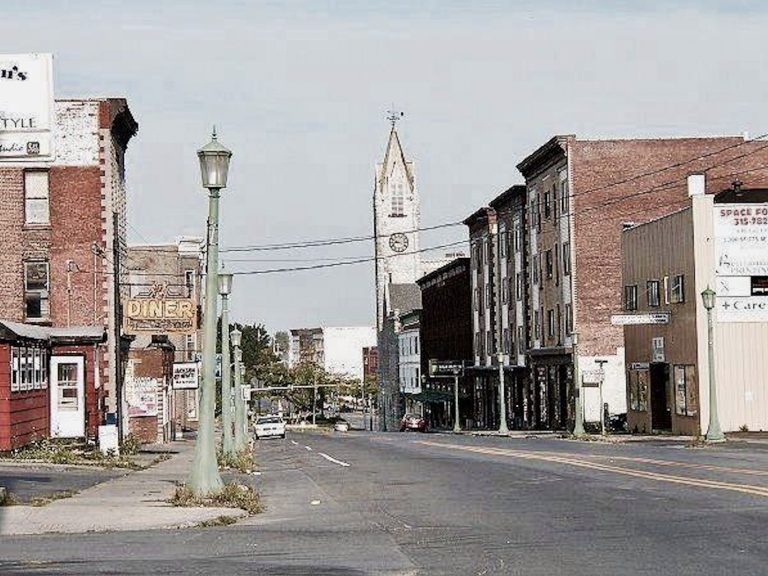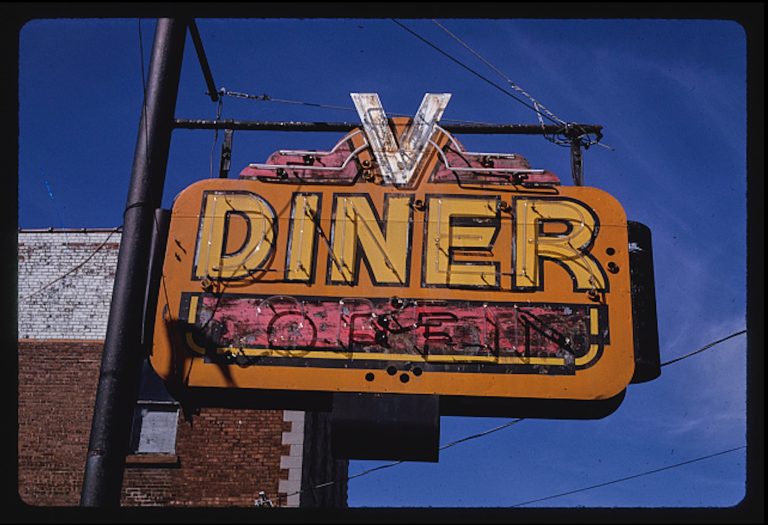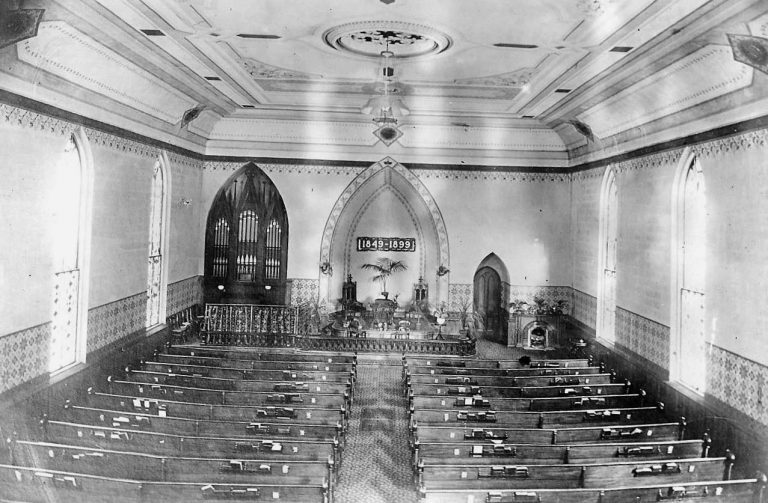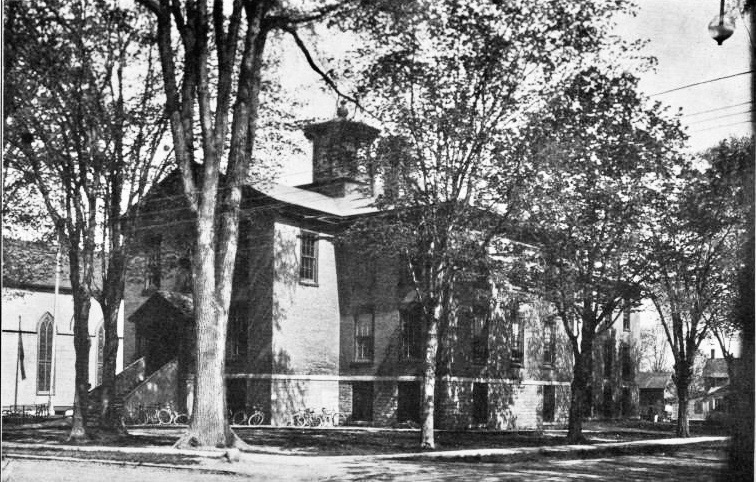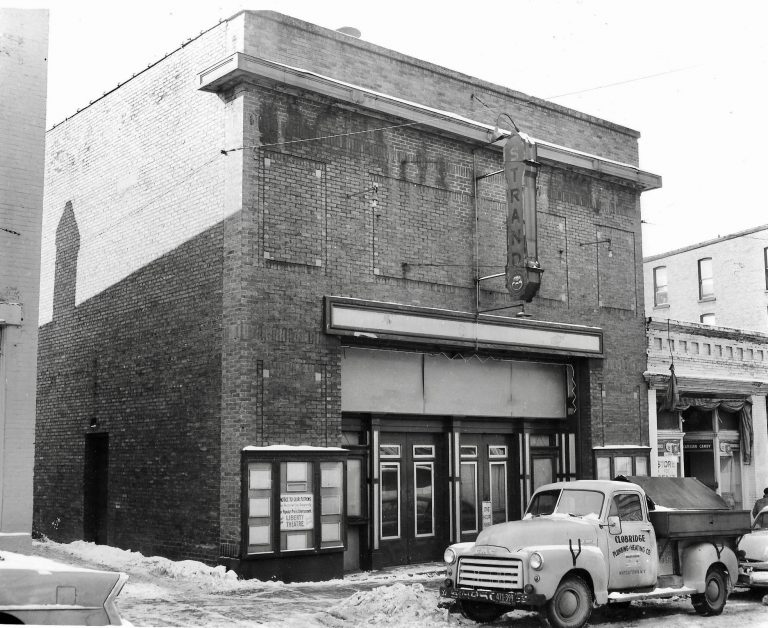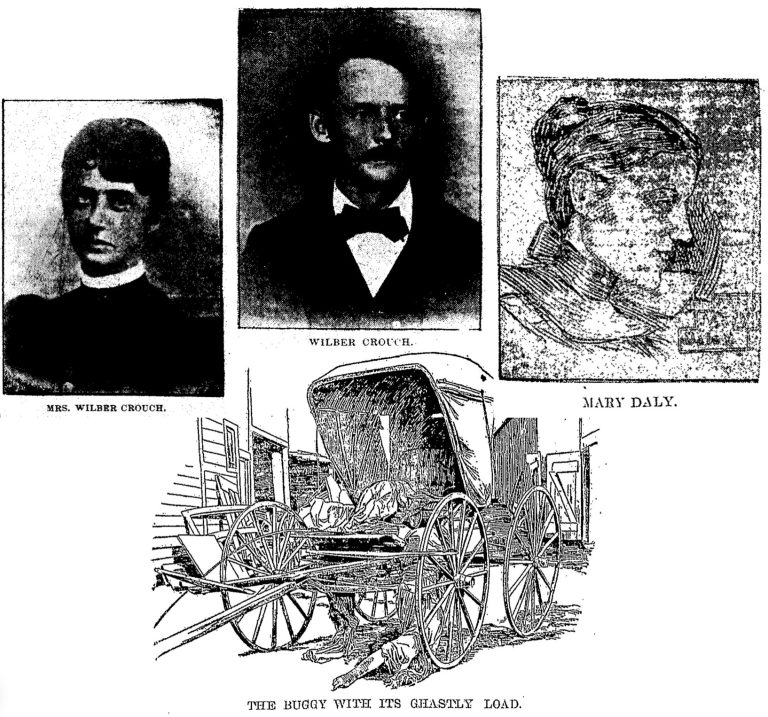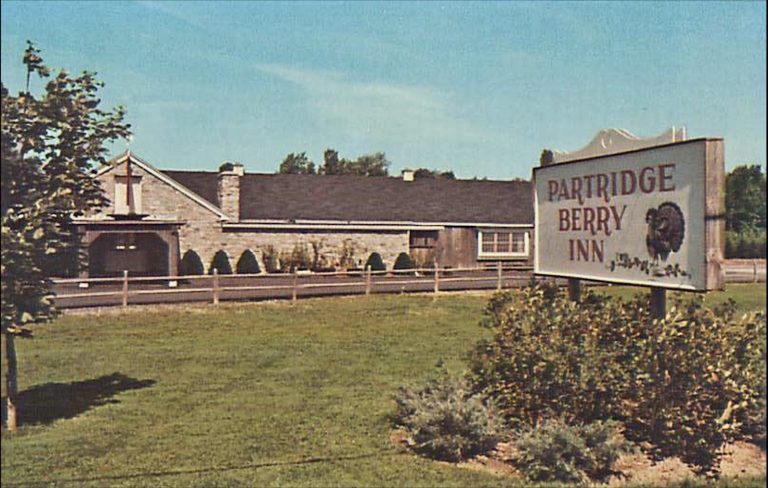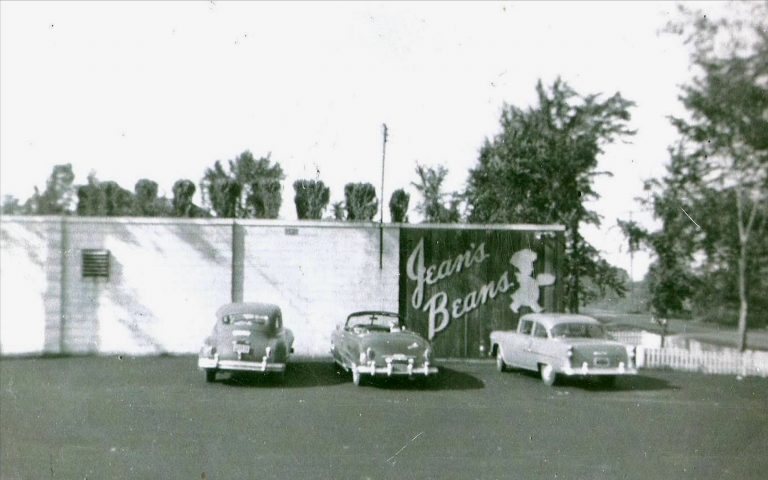Established in 1942 by Greek Immigrants, the Victory Diner was a Long-Time State Street Staple
Once located at 332 State Street between Union and Park Streets, the Victory Diner opened when diners in downtown Watertown were a trendy alternative to full-scale restaurants and luncheonettes within stores. Situated about a block east of the Eleanor Diner, which was located next to the Olympic Theater, both diners remained popular despite competing against one another in the same block, not to mention other diners on Court and Factory Streets over the years.
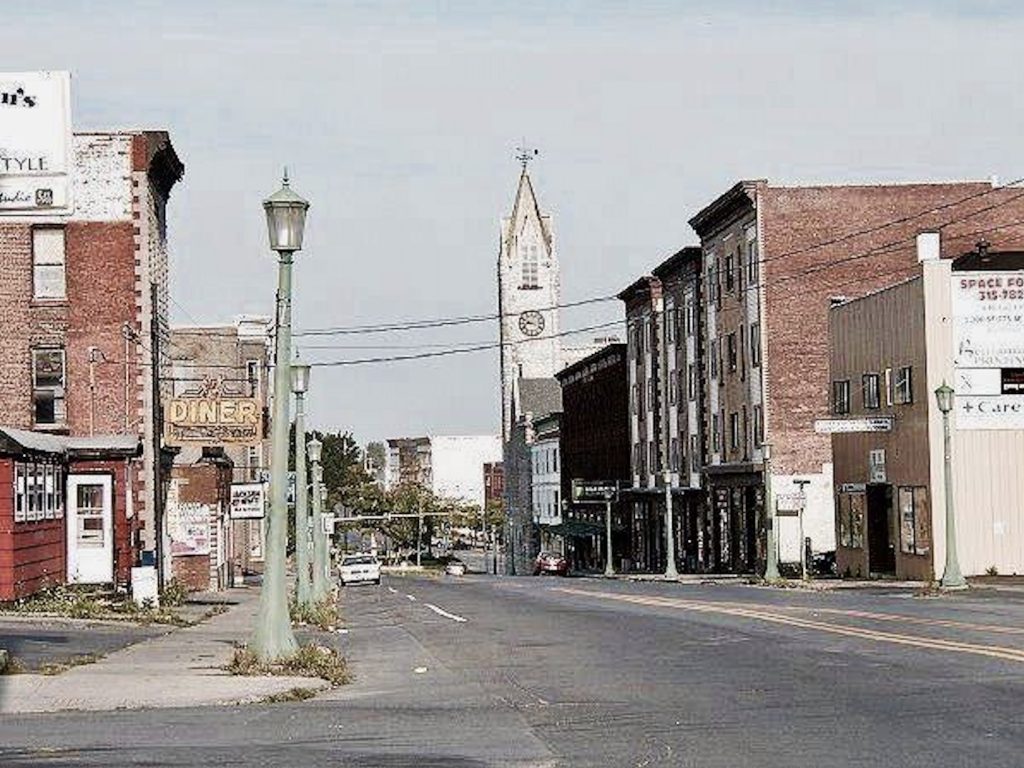
In 1941, Clarence Perialas of Greece, by way of Cortland, N.Y., purchased a double and single house on the lots 326-328 and 334 State Street, respectively. Perialas owned the similarly named Victory Restaurant in Cortland and purchased the property on State Street from Mr. and Mrs. Frederick W. Williams of Cristobal, Panama Canal Zone. Mr. Williams was a descendant of a local family who owned the property for 50 years (the houses were reportedly 60-70 years old.) A year later, what was briefly known as the Victory Club Diner officially opened.
Perialias’s business partner, who lived in Cortland then, was John B. Zannis. He took over the business when Perialias moved back to Greece and operated it until his retirement in 1965 when he sold it. He would pass away three years later at the age of 76, The Times noted in his obituary—
John B. Zannis, 76, of 117 Keyes Avenue, former proprietor of the Victory Club Diner, 332 State Street, and veteran of World War I, died at 10:30 Friday morning in the U.S. Veterans’ Administration hospital of Syracuse where he had been a patient since April 18. Death was attributed to a kidney infection.
He was born in Demetsana, Greece, June 24, 1891, a son of Vasilios and Sophia Paraskevapoula Zannis. He came to this country in his youth and later became a naturalized citizen. He resided for years in Syracuse, where he was the proprietor of a grocery store, and at one time lived in Cortland.
Subsequently, Mr. Zannis’ cousin, Louis James, became his partner in the ownership and operation of the diner. Later, Mr. James withdrew from the business and Mr. Zannis operated it until 1965 when he sold it and retired.
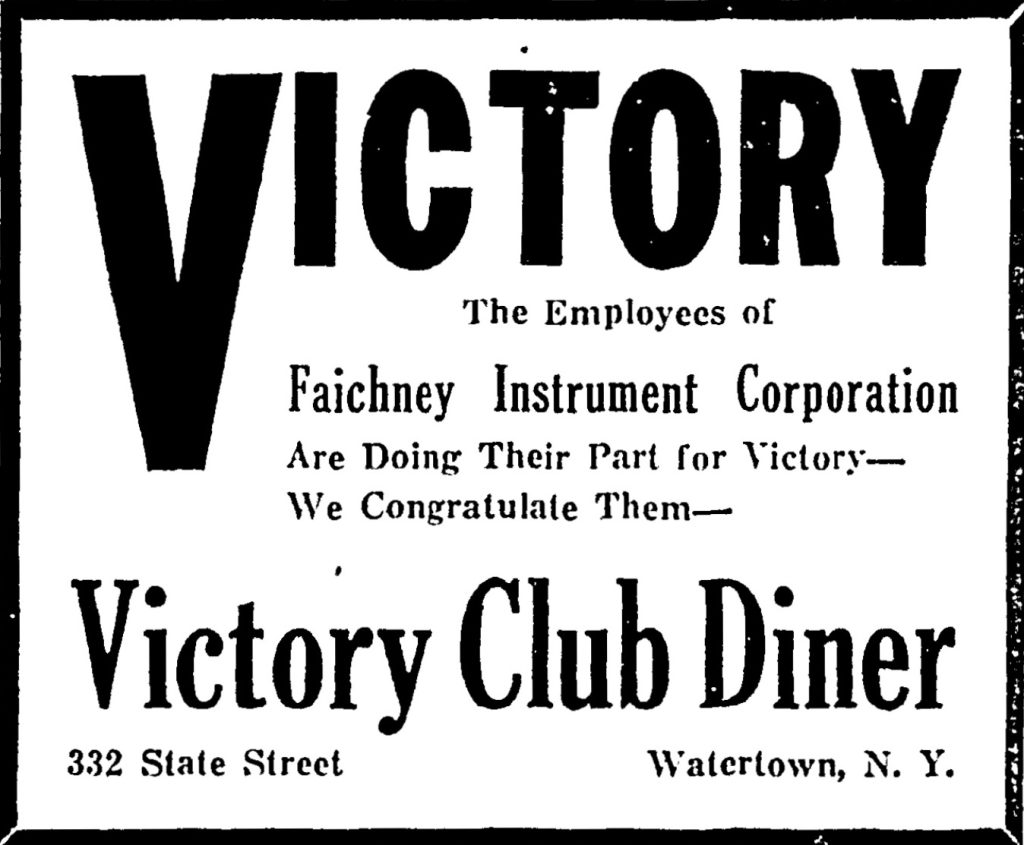
The owners from 1965 to 1970 could not be determined through newspaper archives, but in April of 1970, Wilfred J. and Marguerite L. Roux filed for a liquor license DBA to operate as “Victory Diner,” and opened its tap room later that month.
The next record found was on August 5, 1981, when Mrs. Nancy Williamson, 256 Flower Ave. E. took over the Victory Diner’s operation after briefly being known as the Club Diner for a few years while managed by Thelma Phillips. Nancy and her husband Charles bought and sold the diner to Charles Grunner in 1986. It should be noted that, in many cases, the operation and proprietorship were done through leases, meaning those managing the business didn’t necessarily own the diner.
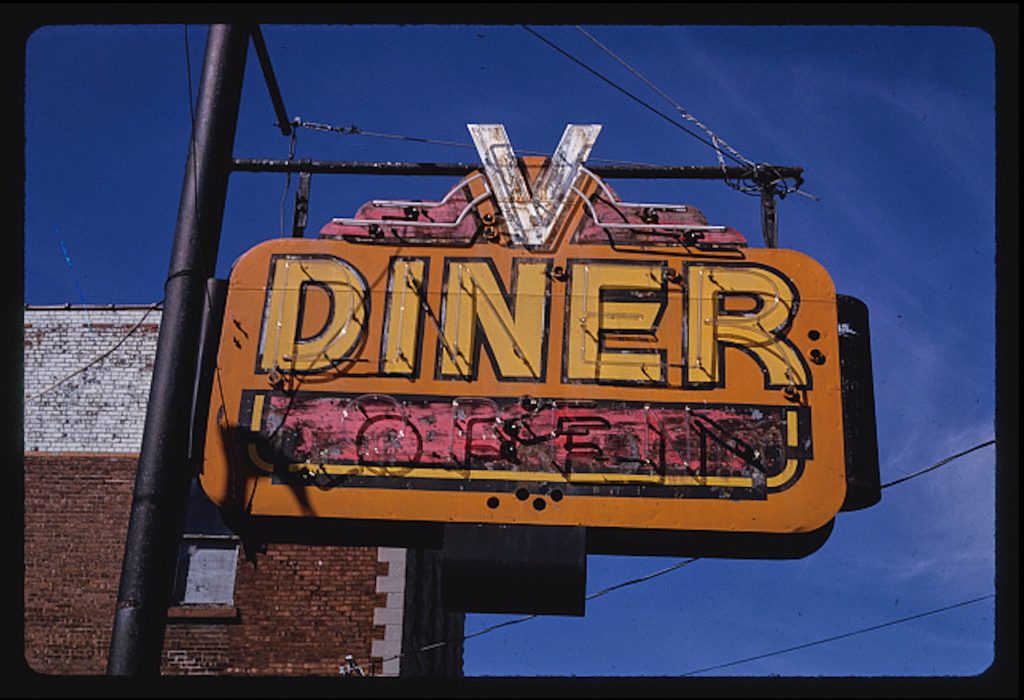
In 1991, the Victory Diner would see the beginning of a turnstile of ownership changes, beginning with Randy M. Jackson and partner Richard J. Hartle. Together, they took over the business from Frederick H. Gruner of Carthage, leasing the diner from him and offering new hours, a new menu, and a new interior while rebranding it “The New Victory Diner.” The restaurant would revert to its once 24-7 operation, whereas the previous management closed it at 2 p.m.
A year later, Bonnie LaRock, a former waitress at the diner, managed it and rechristened it “Bonnie’s Victory Diner.” Like the previous management, the venture lasted only a year before Julie L. Harra took it over in 1993 and ran it for approximately five years as “Julie’s Victory Diner.”
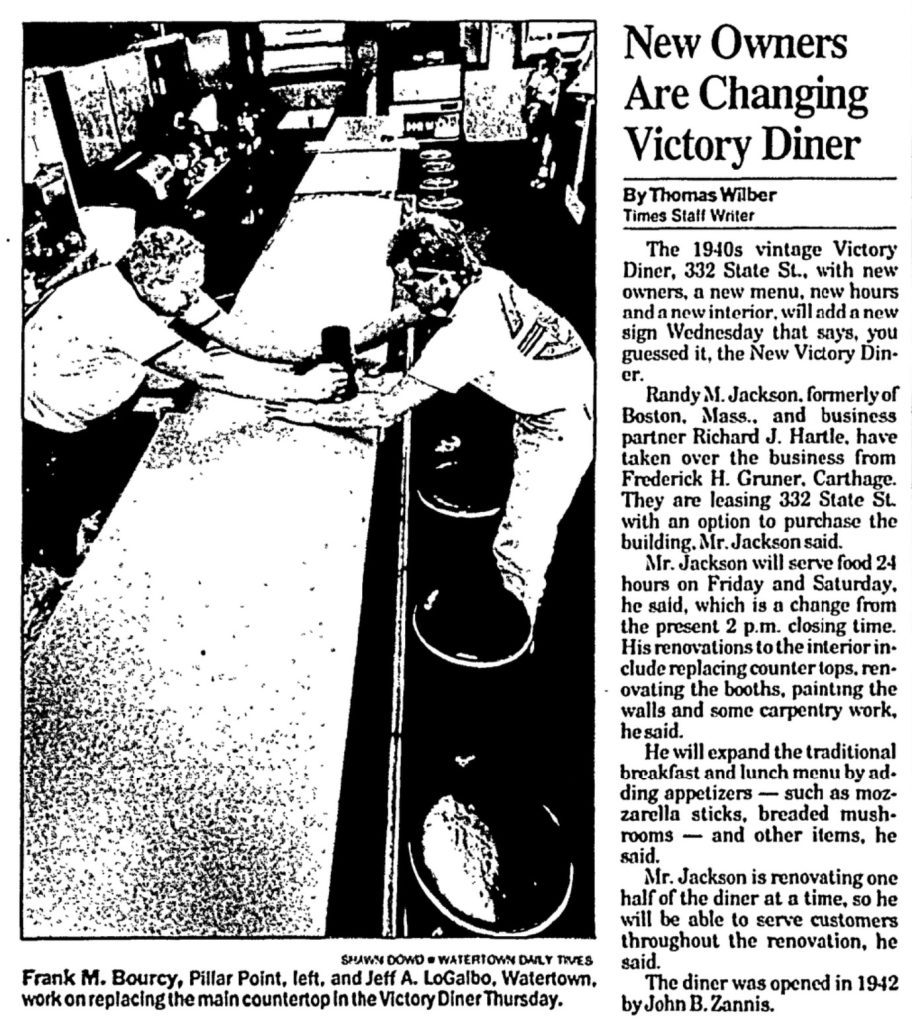
In November 1998, The Times once again reported changes afloat at the Victory Dinner—
Julie’s Victory Diner, 332 State St., will close at the end of the month and re-open in January under new management.
“I’m just tired,” said Julie L. Harra, owner, who rises at 3 a.m. to open the 56-year old diner at 5. “I’ve been here a while. There’s a lot of competition.”
Mrs. Harra rents the diner building from Fred H. Gruner, Carthage. Starting in January, he will rent to Mrs. Harra’s sister-in-law, Mo Harra, who also runs Mo’s Diner on Factory Street.
While the Victory still has its 40 to 50 regulars who eat there daily, business has dropped off considerably over the last three years, said Mrs. Harra, talking this morning as she buttered toast and fried up eggs and bacon behind the counter.
The competition has increased, she said—every gasoline station now seems to serve coffee and microwavable croissant sandwiches, new rest restaurants go up on Arsenal Street and more fast food places open for breakfast, like the Burger King across the street.
In its heyday, the Victory was “a hopping place,” Mrs. Harra said, open 24 hours a day, with customers lining up outside to get in. It once had a bar, which closed around 1982.
The diner became Mo’s Diner Too the following year and operated for a couple of years before closing. In its last several years, the former Victory Diner was owned by local developer PJ Simao, who purchased it in 2001. It was put up for sale in 2004, but with no offers, it was razed in February 2006.

Serving Up Comfort Food with a Side of Crime
During its long history, an unprecedented amount of crime, particularly auto thefts, occurred before, behind, or near the establishment. Losing count of the number of stolen cars, at least two to three dozen occurred from 1942 through the 1970s. Often, cars stolen in other areas would turn up in the diner’s parking lot in the rear as if it were some Bermuda Triangle of crime.
In several instances, customers would come out of the Victory Diner after a meal and find their car jacked up on one side with a stolen wheel. In another instance, a car battery was removed. Even the Syracuse Post-Standard newspaper dispenser in front of the diner was stolen in the mid-1970s. One can only wonder where that relic ended up.
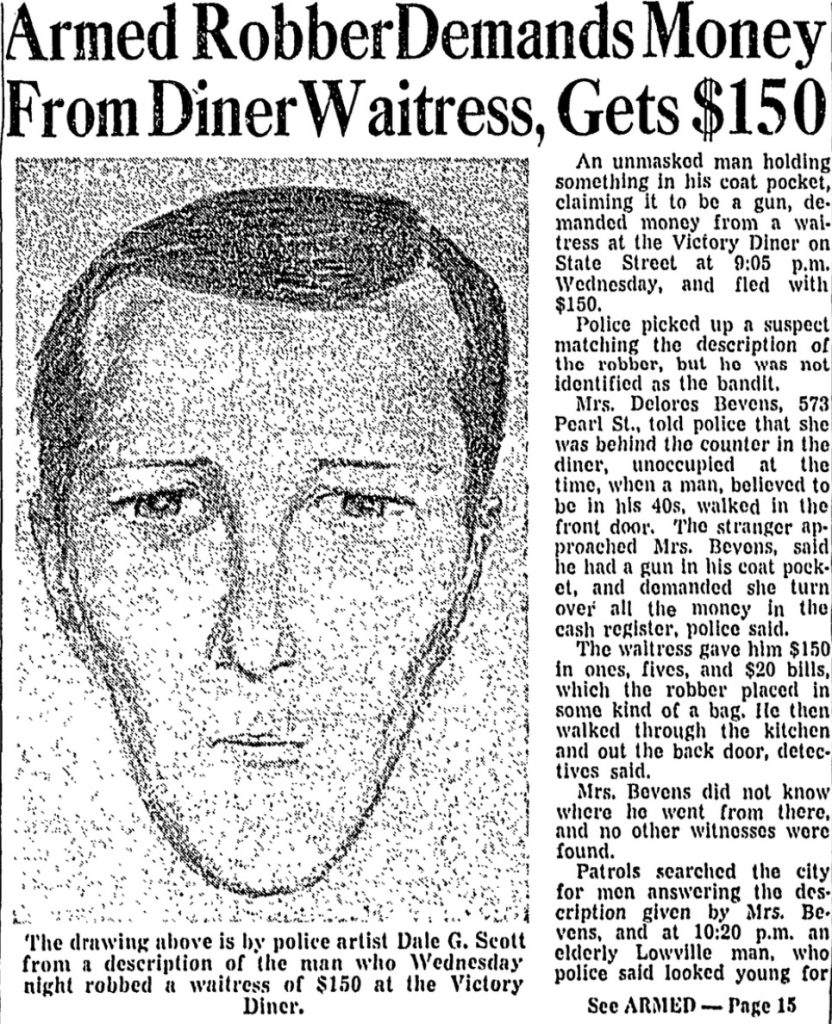
In another incident from the mid-70s, an unmasked armed robber held up a waitress and stole $150. The suspect’s drawing circulated in The Times, and a suspect was later picked up matching the drawing. However, several weeks later, the waitress and another woman confessed to fabricating the entire story to cover up their theft of money from their employer. Both were given a year’s probation and returned the money to their employer.
